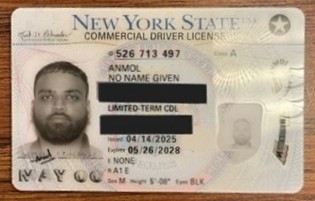Militias
The above quote is attributed to Thomas Jefferson, but it is no doubt a quote that many Americans acted upon with the recent passage of the National Defense Authorization Act of 2012. Many Americans may have never read or heard Jefferson's most often quoted statement. There is a spirit of liberty that naturally sounds with alarm, alerting American households of that danger to our liberties that lurks close by to engulf them in the flames of tyranny unless quick, bold and decisive action is taken to derail the assault.
Americans took such action by taking to the air waves, phone calls and emails to their U.S. Senators and members of the House of Representatives. Those citizens were in strong opposition to a key component of the act which would detain any American citizen without due process of law if one were suspected of being a terrorist. This would be done even without a high profile of probable cause of criminal conduct in waging war against America as a terrorist. The detainee provisions are no longer in the final version of the NDAA after a storm of protest that let Congress know that Americans are not asleep at the helm of their liberty in these times that try men's souls.
Americans are not only being attacked by all four branches of the federal government (the fourth branch being federal agencies) but by violent forces of the Muslim world at home and abroad.
A few years ago the Tea Party movement sprang up across the country by taking up the mantle of liberty bequeathed to us by our Fore Fathers. American's are seeing close up and personal every where a real clear and present danger to every American's life, liberty and property and have taken quick and decisive action against the tyranny of the federal government against a free people.
Now seriously reconsider our 2nd Amendment use of militias which is our duty and our inalienable right to be free from oppressive government as so eloquently stated in the opening paragraph of The Declaration of Independence. Title 10 explains what is meant by a militia.
TITLE 10 - ARMED FORCES Subtitle A - General Military Law PART I - ORGANIZATION AND GENERAL MILITARY POWERS CHAPTER 13 - THE MILITIA -HEAD-Sec. 311. Militia: composition and classes
-STATUTE-
The militia of the United States consists of all able-bodied males at least 17 years of age and, except as provided in section 313 of title 32, under 45 years of age who are, or who have made a declaration of intention to become, citizens of the United States and of female citizens of the United States who are members of the National Guard. b) The classes of the militia are - (1) the organized militia, which consists of the National Guard and the Naval Militia; and (2) the unorganized militia, which consists of the members of the militia who are not members of the National Guard or the Naval Militia.
It is clear from the above statute that there is a clear difference between an organized militia called the National Guard, a Naval Militia, and an unorganized militia that consists of people who are not members of either one. Not only does the Constitution specifically allow the formation of a Federal Army, it also recognizes the inherent right of the people to form militias. Further, it recognizes that the citizen and his personal armaments are the foundation of the militia. The arming of the militia is not left to the state but to the citizen. However, should the state choose to arm its citizen militia, it is free to do so (bearing in mind the Constitution is not a document limiting the citizen, but rather limiting the power of government). But should the state fail to arm its citizen militia, the right of the people to keep and bear arms becomes the source of the guarantee that the state will not be found defenseless in the presence of a threat to its security.
It makes no sense whatsoever to look to the Constitution of the United States or that of any state for permission to form a citizen militia since logically, the power to permit is also the power to deny. If brought to its logical conclusion in this case, government may deny the citizen the right to form a militia. If this were to happen, the state would assert itself as the principle of the contract making the people the agents. Liberty then would depend on the state's grant of liberty. Such a concept is foreign to American thought.
Since The Constitution is the limiting document upon the government, the government cannot become greater than the granting power. That is, the servant cannot become greater than its master. Therefore, should the chief executive or another branch of government or all branches together act to suspend the Constitution under a rule of martial law, all power granted to government would be cancelled and differed back to the granting power -- that is the people. Martial law shall NOT be possible in this country as long as the people recognize the Bill of Rights as inalienable.
It is clear, from the Federalist Papers and the debates about the adoption of the Constitution, what the Founders and Framers recognized as the Militia. They frequently discussed the meaning and purpose of the Militia. In the Federalist Papers numbers 24 through 34, it is to consist of "the whole of the people." It is designed to allay the public fears of a despotic central government Congress has acknowledged who the Militia is in the Second Amendment. On page 11 of the Report of the Subcommittee on the Constitution of the Committee on the Judiciary, United States Senate, Ninety-Seventh Congress, Second Session, February 1982, it states: "The militia refers to a concept of a universally armed people, not to any specifically organized unit. When the framers referred to the equivalent of our National Guard, they uniformly used the term "select militia" and distinguished this from "militia."
Debates over the Constitution constantly referred to organized militia units as a threat to freedom comparable to that of a standing army and Stressed that such organized units did not constitute, and indeed were philosophically opposed to, the concept of a militia. That the National Guard is not the militia referred to in the Second Amendment is even clearer today. Congress has organized the National Guard under its power to raise and support armies and not its power to provide for organizing, arming, and disciplining the militia. (House Resolution Report No. 141, Seventy-Third Congress, First Session, February 5th, 1933.) This Congress chose to do, in the interest of organizing reserve military units which were not limited in deployment by the strictures of our power over the constitutional militia, which can be called forth only "to execute the Laws of the Union, suppress Insurrections and repel Invasions." The modern National Guard was specifically intended to avoid status as the constitutional militia, a distinction recognized by 10 United States Code, Section 311, Subsection (a). Hopefully this article will shed some historical truth concerning state militias.
All of Western Civilization is under attack by the Muslim world by legal and illegal immigration, social, political, educational, psychological warfare as well as physical violence. No wonder more and more men and women are arming themselves in America were guns and ammunition are in the millions as our last bastion in defense of our lives, our liberties and our properties. Are the words of Patrick Henry in his liberty or death speech just for his day or reaching down to us Americans today to be of the same mind set and vigilance over two hundred years later?










Latest Commentary
Thursday 30th of October 2025
Thursday 30th of October 2025
Thursday 30th of October 2025
Thursday 30th of October 2025
Thursday 30th of October 2025
Thursday 30th of October 2025
Thursday 30th of October 2025
Thursday 30th of October 2025
Thursday 30th of October 2025